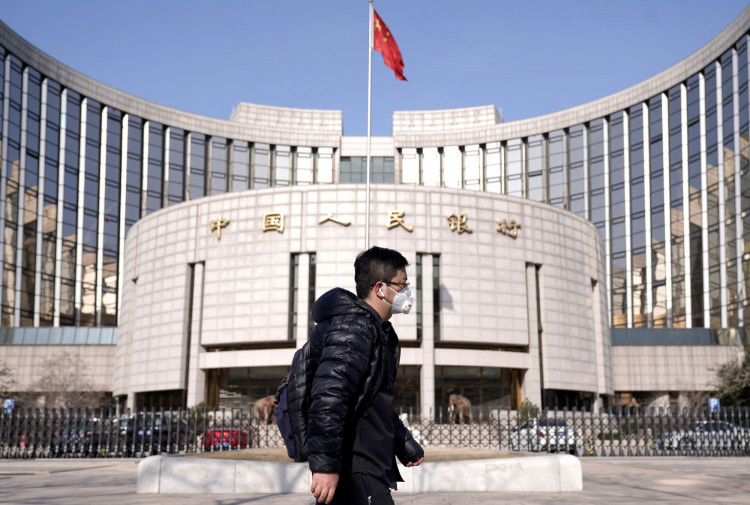This Monday, the People's Bank of China (PBOC) announced that it is cutting back interest rates on medium-term loans. The latest policy was said to be a measure taken by the country to reduce the economic shock from the deteriorating economic activity that significantly disrupted business activity.
China's central bank announced a reduction of interest rates on 200 billion yuan of its one-year medium-term lending facility (MLF) loans to financial institutions. The cut would be by 10 basis points (bps). The interest rate would only be at 3.15 percent instead of 3.25 percent.
It was also announced that there are no MLF loans that were to mature by the time the announcement was made. This February, the PBOC also lowered interest rates on reverse purchase agreements by the same basis points.
The report also claimed that the PBOC would also be announcing ta cut on China's benchmark loan prime rate (LPR) by Thursday this week. In a statement, the country's central bank already put 100 billion yuan of reverse repos to financial institutions at the time that one trillion yuan-worth of reverse repos would expire.
In other news, Business Insider reported that China's central bank would also start destroying banknotes collected by buses, hospitals, and markets. It would also disinfect some of the bills and store them for 14 days before subjecting them back to circulation.
Furthermore, banks in Guangzhou would require customers to indicate where the banknotes were acquired. However, it was revealed that the measure may not be completely effective in preventing health hazards.
The People's Bank of China ordered banknotes with high exposure for either destruction or disinfection. It also ordered Commercial banks to observe the same precaution before turning them over to the central bank.
The report claimed that economists have been lowering their expectations on global economic growth along with major corporations that are adversely affected by China's supply chain disruption.
In turn, China's central bank would use high temperatures or ultraviolet light to keep banknotes clean and free from health hazards. It was, however, noted that the measure would not affect the money supply in the country.
Deputy chief at a large bank in Guangzhou claimed that although customers were required to indicate the origin of the banknotes, the measure would not assure that the same are the same from contamination.
The People's Bank of China's deputy governor Fan Yifei also announced last Saturday that about 600 billion yuan have been under the custody of China's financial system since January 17, 2020. About four billion yuan were circulated in affected areas before the Lunar New Year.





